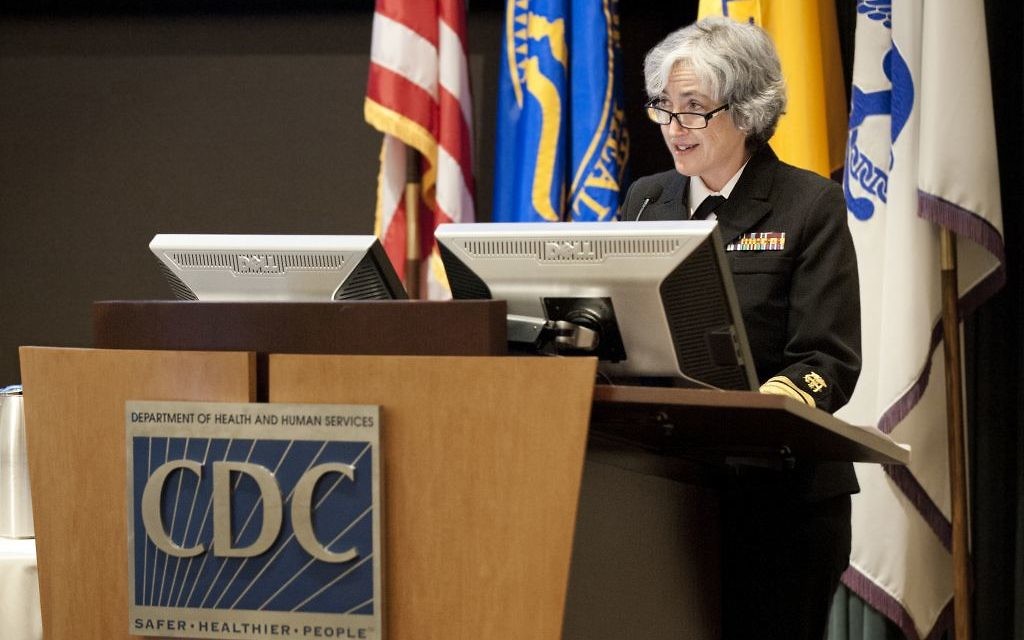CDC Head Watching Bird Flu From China
CDC developing new vaccine for H7N9 in case bird flu begins to spread from person to person.
One of the most pressing public health issues in 2017 isn’t the Zika virus or Ebola, according to the director of the Centers for Disease Control and Prevention; it’s the flu.
Anne Schuchat, who became the CDC’s acting director after Tom Frieden resigned at the start of President Donald Trump’s administration, said Zika remains at the top of the organization’s list of concerns, but a new strain of flu from China, H7N9, has disastrous potential if it reaches the United States.
“We’ve been tracking it since 2013 when it emerged. Most of the human cases result from contact with live birds, and 40 percent of infections result in death, and almost everyone that gets it needs to go to an intensive care unit,” Schuchat said. “What’s scary right now is that in the fifth year of this we are seeing the strains change and adapt away from the vaccine we produced against it.”
Get The AJT Newsletter by email and never miss our top stories Free Sign Up
The CDC is working on a new vaccine for H7N9 in case the strain starts spreading from person to person instead of bird to person.
“One of the reasons we have people working in 60 countries is because a threat anywhere is a threat everywhere,” Schuchat said. “So we always have to take flu strains seriously because the threat of a global pandemic could be a catastrophe.”
Schuchat, who grew up in a Conservative Jewish family in Washington, was working at the CDC in 2009 when H1N1 slammed the United States. Several Jewish summer camps, including Camp Coleman in Cleveland, were forced to cancel sessions because of the outbreak.
The flu is usually invisible in the summer in the United States, but in 2009 a new strain was detected in late spring and caused a large wave of infections, leading to those camp cancellations. When school started back in the fall, H1N1 took off.
“It was pretty disruptive,” Schuchat said. “But we were lucky in 2009 because most elderly people were already protected against it from a strain they had when they were young.”
Schuchat, who has worked at the CDC since 1988, is hardly the Clifton Road-based agency’s first Jewish director. Frieden, who was director from 2009 to 2017, is Jewish, as is Jeffrey Koplan, the director from 1998 to 2002.
Frieden played a key role in fighting the 2014 Ebola outbreak in West Africa. Koplan was the director during the 2001 anthrax attacks and spurred anti-terrorist improvements to the CDC infrastructure.
Asked why she thinks three of the past four CDC directors have been Jewish, Schuchat said her family put an emphasis on education when she was growing up.
“I certainly grew up in a family that was really focused on education and achievement,” she said. “My parents really valued the opportunities they got. My dad grew up when there were quotas for Jewish people at universities. I’m just so grateful to have this opportunity to lead.”
In nearly 30 years at the CDC, Schuchat has experienced numerous public health scares. A main character in the 2011 medical disaster film “Contagion,” Erin Mears, is partially based on Schuchat. Kate Winslet, who played Mears, consulted with Schuchat while preparing for the role.
Interim directors are not usually appointed permanent CDC directors, but Julie Gerberding, who was part of the interim management team after Koplan resigned, was appointed to the main role.
“This is a temporary position for me,” Schuchat said, “but it’s really been great to represent the agency in different ways and to contribute. This is such a special place. People are so passionate about protecting people, and the chance to serve in a leadership role here is really a privilege.”
Koplan, who is now the vice president for global health at Emory University and worked with Schuchat at the CDC, praised the acting director.
“She’s a highly skilled, talented public health professional who does superb work,” Koplan said. “She has the highest integrity, makes wise decisions based on carefully reviewing the evidence and the data, and has worked on a wide range of difficult infectious disease issues.”





comments